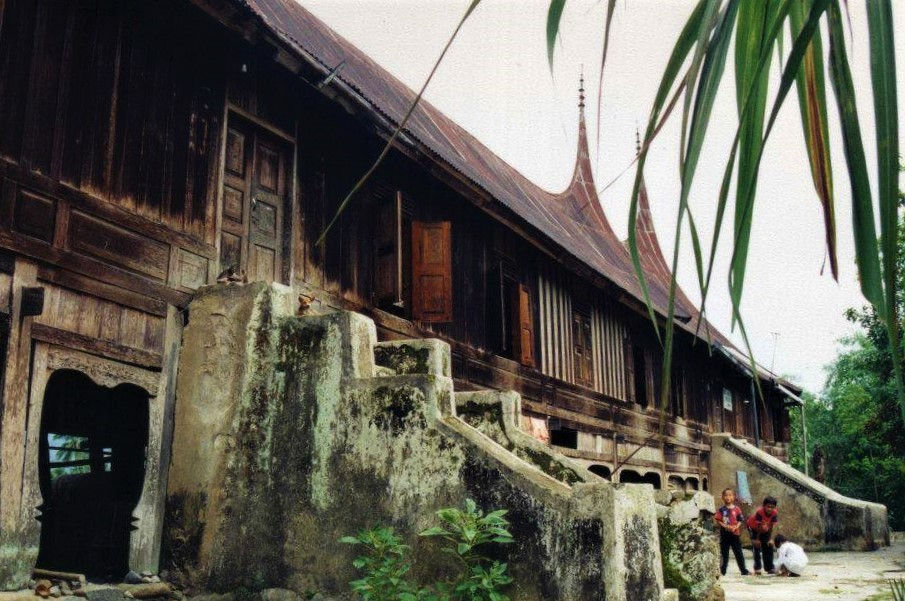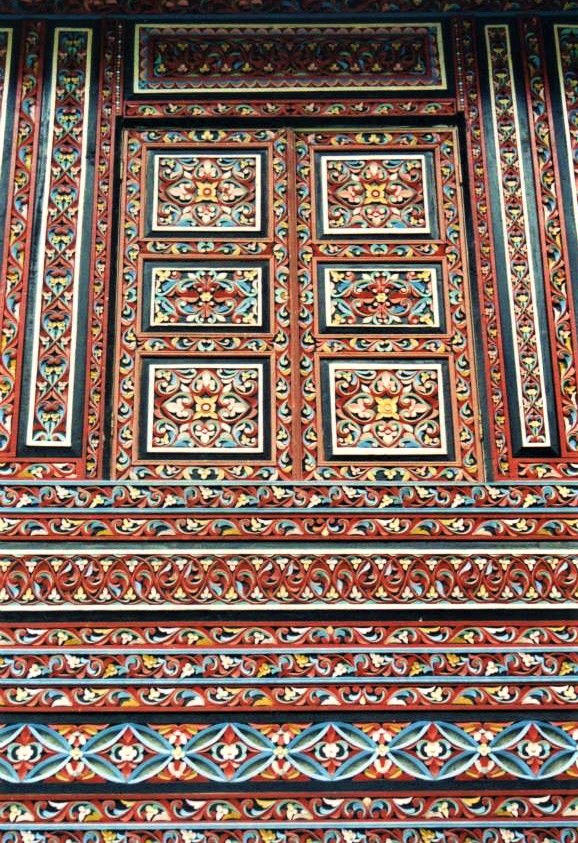Bukittinggi, West Sumatra
- Matthew P G

- Jan 8, 2023
- 5 min read
Updated: Mar 17, 2023


April 1997
One of our favorite places in Indonesia was the Minang Highlands around Bukittinggi, West Sumatra. Brian and I had fallen in love with it on our round the world journey after he finished law school [see: Lumbini to Tokyo]. In fact, we ended up going back twice in the five years we were in Jakarta and enjoyed both visits although in totally different ways.
On our first visit back, we were "Ramadan refugees" escaping Jakarta for a few days. Life totally changed in the capital during Ramadan and foremost in that change (for expats) was that no alcohol was sold and no bars were open. Also, almost all restaurants totally changed their opening hours. All of us screamed bloody murder, of course, but we were told it was "out of respect for the Muslim community" (who weren't supposed to drink alcohol or eat during daylight hours anyway?). A lot of aspects of life in Jakarta during that holy month grated on us, so I was happy to be away from it all if only for a long weekend.
That being said - we were going to West Sumatra and the Minang people were absolutely famous for being extremely devout Muslims (and they are). How shocking for us then to find all the restaurants in town open during the day (with customers) and not all covered up in sheets so as not to "offend" passers-by. People said matter-of-factly, "not everyone is fasting in Ramadan, so of course the restaurants stay open". Even more shocking was at the hotel bar where I asked for my welcome drink to be told I could have a beer. I looked at the bartender incredulously and said, "a beer? it's Ramadan!" His reply, "so what? I am fasting you're not" I found out that the bars (very few) of Bukittinggi were also all open during Ramadan basically for the tourists (local and foreign) who were passing through. In both cases, the locals were stunned that we thought they would change any aspect of life during Ramadan. I developed a new appreciation for the Minangkabau people - extreme tolerance!
On that trip we hired a car and driver and revisited many places we had been a few years earlier. That go round we could speak Indonesian and we learned a lot more in each location. So enamored by the beautiful old, multi-family houses (rumah gadang) and their carvings were we, that we bought a few panels and eventually incorporated them into "Brian and Matt's Museum House" in Milford years later. I was so impressed with the Minang - business people on steroids, mainly small shop or restaurant owners all across the archipelago and on the Malay Peninsula. They truly were a successful ethnic group who valued hard work and education. Some of Indonesia's most famous novelists also claimed Minang heritage. One of our best friends in the Jakarta years was Marlis, a young Minang guy seeking his fortune in the capital city.
On that second trip we also found the little homestay we used on our first trip and met the very personable guy "Jonedi" who had been so good to us. Unfortunately, he had aged a lot in the intervening years and become a totally different person. He honestly didn't even care we had stayed there before and came to look him up. We were very saddened and wondered what parade of guests had caused him to become so obviously pessimistic and cynical. Could it have been watching all those wealthy young foreigners pass through eventually made him question everything? "Why are these people so lucky and get to travel and I am stuck here?" Even if we could communicate with him in Indonesian, it didn't matter. We didn't stay long, and Brian and I both were disappointed since he really made our first stay in his city memorable. Sometimes it's better not to try to revisit a memory.
Our subsequent visit was with our Jakarta bestie, Marlis. He was one of our most steadfast friends throughout our time in Jakarta. Marlis owned a small shop and with the help of his sister and other family members was always doing his best to "make it" in the world of textile sales. He changed his shop location and what he sold multiple times in the time we knew him - but Marlis never came begging us for money. He clearly knew what he was doing.
Marlis was actually from the steamy coastal plains and we visited his home and met his Mom. It was hot, flat, and unpleasant. Brian and I instantly understood why anyone would have wanted to leave that place. The most fascinating part of the visit to his home was seeing how they purified the well water (which was brown and dirty due to agricultural and other human uses). A large, squat cylinder of concrete open on the top and closed on the bottom sat next to the house. It was filled with soil, stones, and sand and had a lot of things growing in it. It did not smell bad, but it looked dubious. The "bad" water was pumped on top and eventually percolated through to the bottom to come out fresh and clear. Marlis' family even drank it (I was not that confident). I loved the totally natural way people provided clean drinking water for themselves!
The other memorable part of that visit with Marlis was visiting "Danau Atas Bawah" (lit. the up and down lakes). In the days before ubiquitous internet images, in the mountains supposedly existed two lakes - famous and beautiful. Because the allegedly gorgeous, but always cloudy, Lake Maninjau had confounded us with poor weather AGAIN (third time was not the charm), we agreed to follow Marlis' lead and find these "beautiful lakes" near Solok. This was his home region, after all. We drove a LONG way into the mountains of Sumatra over some terrible roads. When we finally found the lakes, they were really a bunch of nothing - two small mountain lakes, one higher than the other, viewable from an even higher point. The location was so unremarkable (even for Marlis) that when we realized the scene before us was the actual destination, we just burst out laughing. We never let Marlis live it down either. Any time he recommend anything we always said, "It's not another Danau Atas Bawah is it?"
Bukittinggi ended up being one of our favorite towns in Indonesia. The locals are very religious and extremely gregarious people. They are fiercely proud of their culture yet do not expect others to conform to it. Maybe that is why the Minang people have been so successful across Indonesia and Malaysia?

Comments